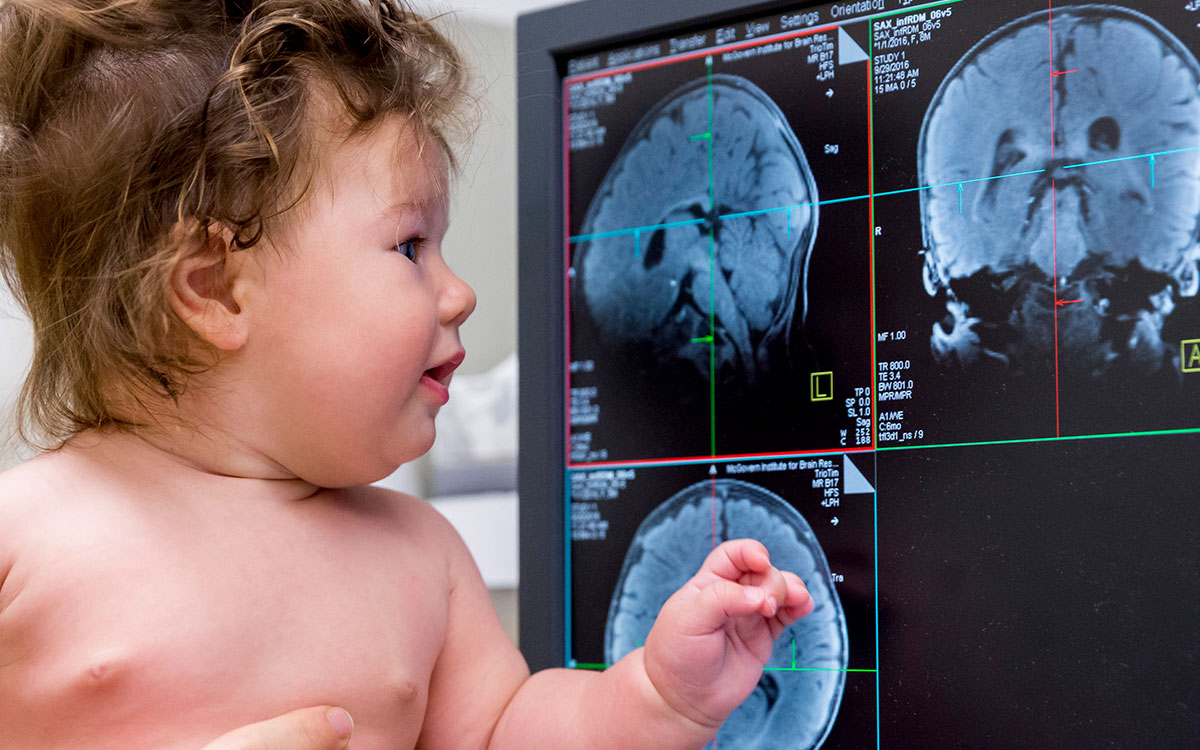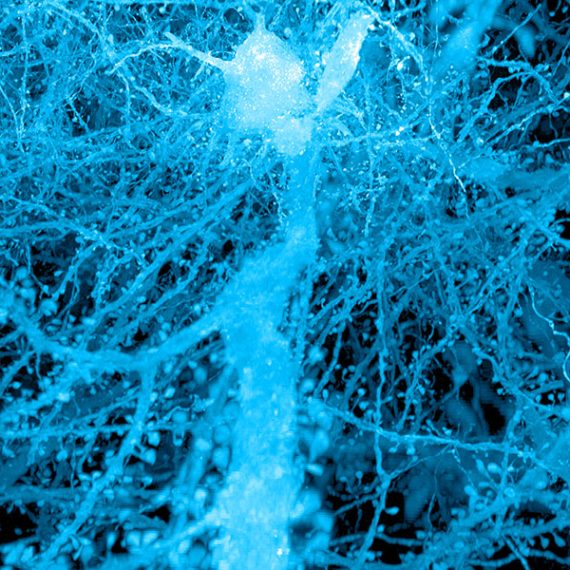Powerful imaging methods like MRI and MEG provide neuroscientists with a detailed view of the human brain – including the spatial and temporal changes that occur as we interact with the world. Our researchers are using these tools to study how the brain develops from infancy, which regions underlie different aspects of our mental lives, and whether imaging can be used to predict the onset of disease.

To view this video please enable JavaScript, and consider upgrading to a web browser that supports HTML5 video

Brain Imaging
brain mapping · functional connectivity · fMRI · EEG · MEG · predictive imaging · precision interventions · contrast agents · theory of mind · the developing brain · learning

Featured Researcher
Evelina Fedorenko
Evelina Fedorenko studies how and why minds and brains create language.
224
The typical number of images our scanners take for a 3D brain reconstruction.
3.5-6 minutes
The time typically taken to generate a structural scan of the adult brain using MRI.
Recent Publications
- Giri, A, Hecker, L, Mosher, JC, Adler, A, Pantazis, D. Localization of Realistic Spatial Patches of Complex Source Activity in MEG. bioRxiv. 2025; :. doi: 10.1101/2025.06.04.657819. PubMed PMID:40501731 PubMed Central PMC12157422.
- Giri, A, Smith, G, Manting, C, Dobs, K, Adler, A, Pantazis, D et al.. Spatiotemporal Dynamics of Invariant Face Representations in the Human Brain. bioRxiv. 2025; :. doi: 10.1101/2025.06.03.657646. PubMed PMID:40501587 PubMed Central PMC12157398.
- Pramod, RT, Mieczkowski, E, Fang, CX, Tenenbaum, JB, Kanwisher, N. Decoding predicted future states from the brain's "physics engine". Sci Adv. 2025;11 (22):eadr7429. doi: 10.1126/sciadv.adr7429. PubMed PMID:40446048 PubMed Central PMC12124385.




